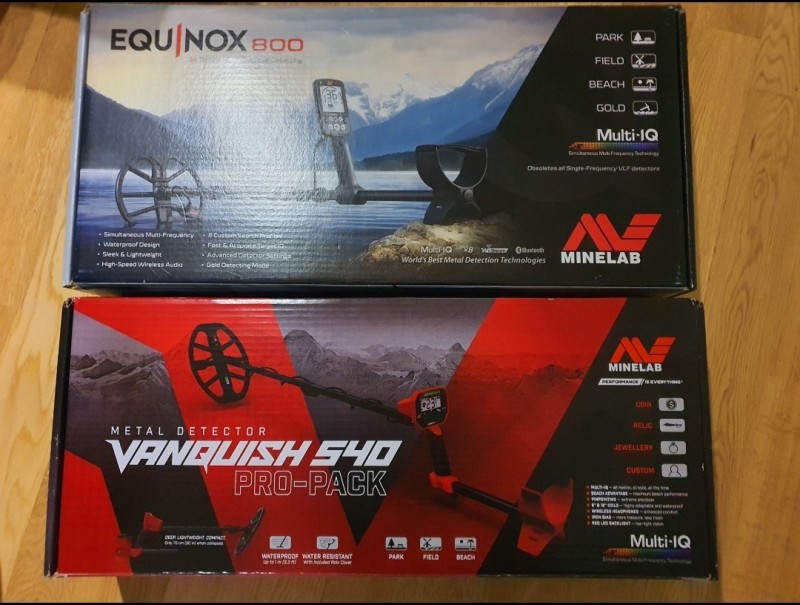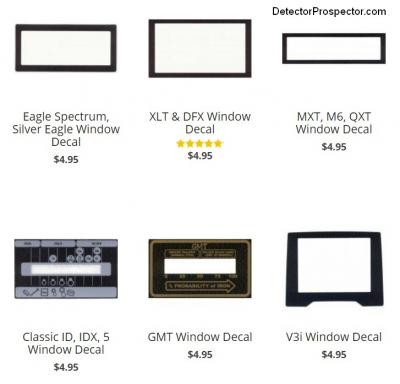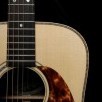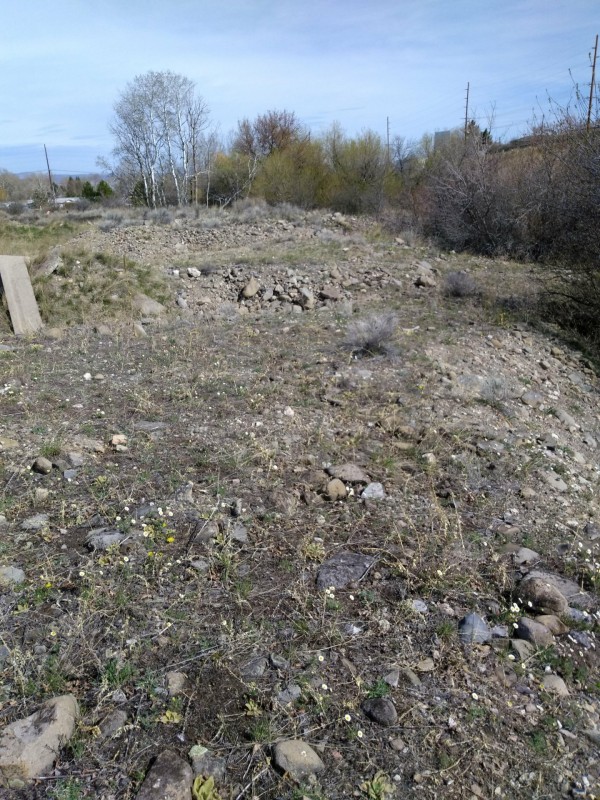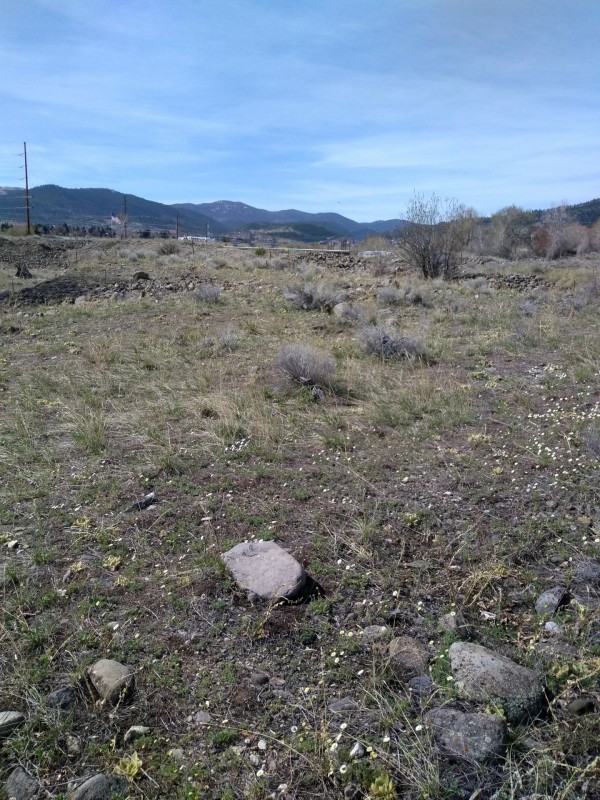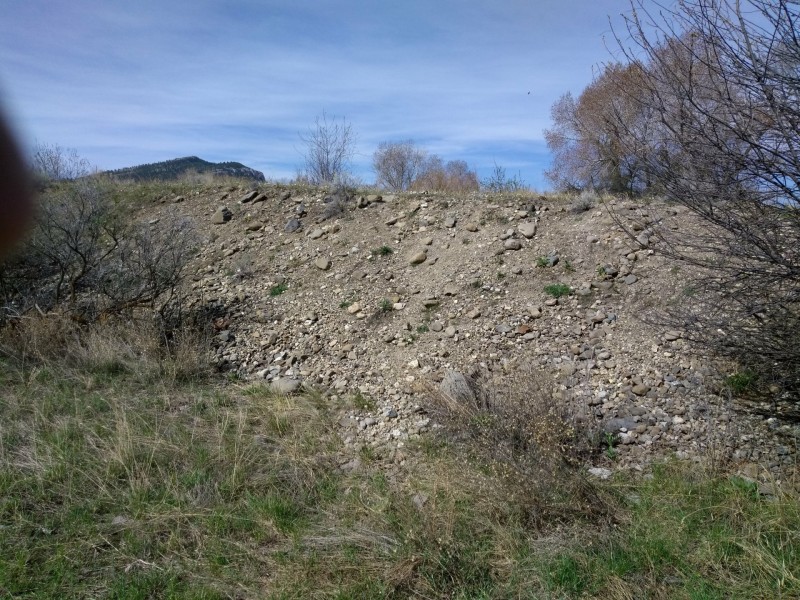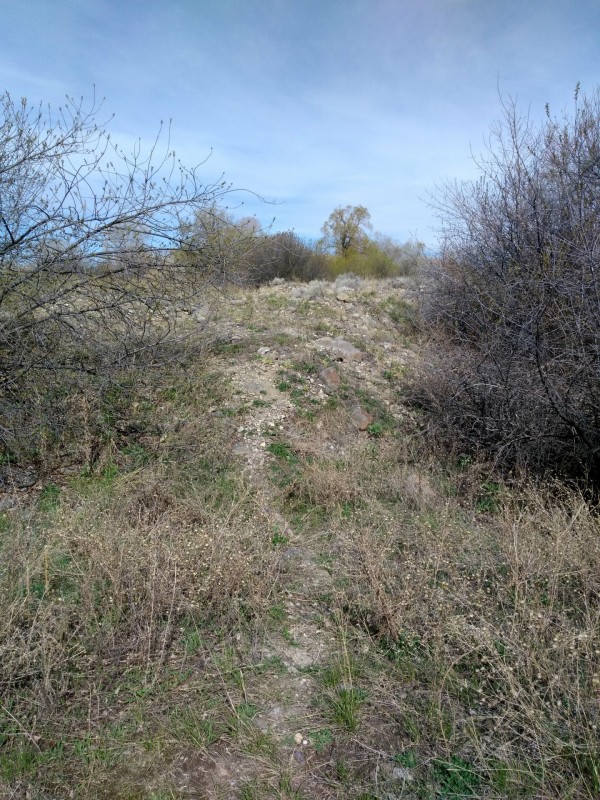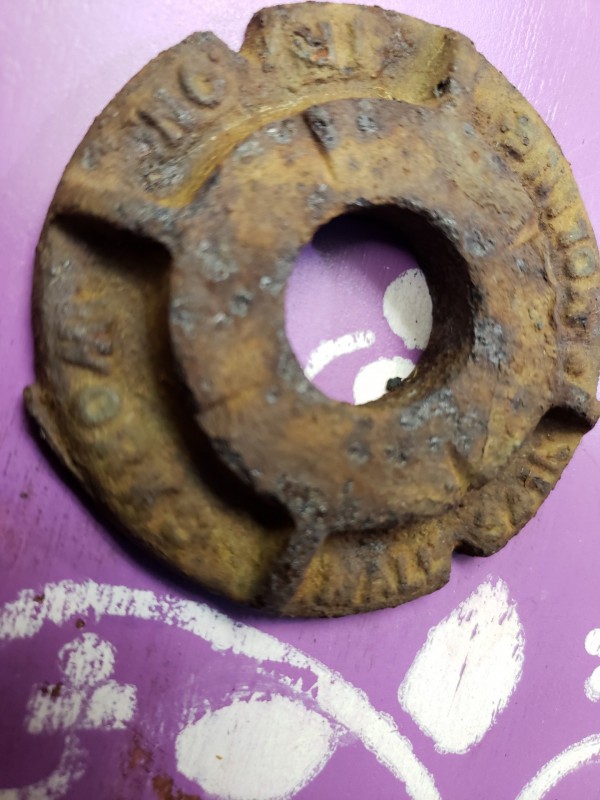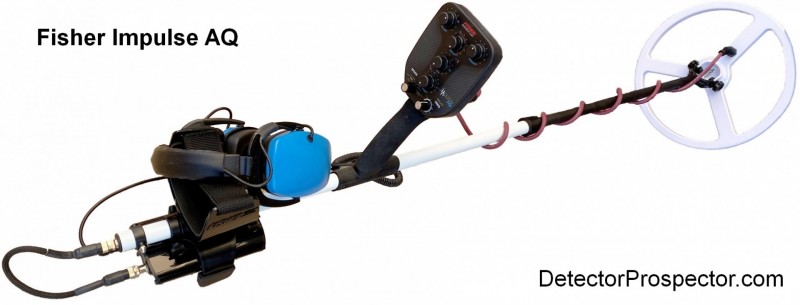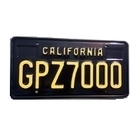Search the Community
Showing results for tags 'advice and tips'.
-
I did a search on forums for possible locations in Sumpter as we are going to be there June 22-25. Most of them where older. Is there some public areas that we can detect there? Or is there a organization that I can pay for access? While were there just hate to miss an opportunity slip away. Also going to Burns and John Day fossil area if anyone knows of some possibilities....detecting or other rockhounding activities... Thanks!
-
Came across this video on the Weather Channel which shows why we all need a pet octopus. Maybe that is the secret to finding 46 gold and 46 silver rings in 2020 so far! https://weather.com/science/nature/video/octopus-finds-engagement-ring-on-ocean-floor
-
So today i picked up the Vanquish for my young bloke (son) and the Nox is mine. Looking at another machine for the minister of finance and war with more of a focus on gold. Heading out to a gold field in Australia soon. Do you recommend another Nox 800 or a goldmonster 1000 they are approximately the same price here. Thanks guys.
-
anyone know of some public land between Atlanta & Chattanooga that you can hunt Civil War relics? I have yet to figure out how to get good permissions in that area and wonder if there are some public lands up along the I-75 corridor between Atlanta and Chattanooga where Civil War relics may be located.
-
Ok, have recently read an article in another forum about fine tuning the equinox in the field. It was basically listening while in different recovery and iron bias settings to hear the best sound and using that setting. Many times , if you go on site, you end up changing between modes and then have to retune again, and that can be intense . I believe that if you sense what your detector is telling you, and then you can make adjustments on the fly. I am wondering if you do the same, and utilize one particular program as a basis to work with? With all of the horsepower and knowledge on this forum, what land and beach program do you use as a good basis for testing your settings. The second subpart to the question is do you use a program that utilizes 50 tones or 5 and do you switch between the two? I have read and watched over the years many different thoughts ( just like a you tube cure), however I find this forum is the one that addresses issues in a more technical and believable way. Look forward to your answers. PROP
- 7 replies
-
- minelab equinox
- research
-
(and 1 more)
Tagged with:
-
When circumstance allow, I like to go prospecting in Victoria's 'Golden Triangle', one of Australia's nugget hot spots. I use my beach machines, a Tdi Pro and a Tdi Sl Limited Edition. The Pro can be used for prospecting without any real issues, the Tdi Sl is more challenging in this environment. I'm going to focus on my experiences in hot ground, infested with ironstone, hot rocks and heavy mineralization. Not going to focus on depth, power or anything other than what it takes to get the machine to operate smoothly with the correct ground balance. The Pro machine has a hugh advantage, simply by vitue of that course and fine ground balance adjustments but this post is mostly about the Tdi SL. The single turn ground balance on the SL is a pain, it takes a bit of time to get it just right. When the ground is hot the SL requires me to use a smaller coil, mono being the best. Mono coils in my experience are quieter, more stable and much easier to ground balance. Larger folded mono coils, duel field coils and the newer and hotter spiral wound coils all suffer when the ground is very hot, they are noisy and difficult to ground balance with a Tdi Sl. The Tdi Sl with the stock 12 x 7 Miner John folded mono can be balanced but it will transmit more ground noise and be more difficult to ground balance when compared to using a smaller mono coil. Forgive me but I'm going to repeat myself a few times in this post. The smaller the coil the quieter the Tdi Sl will be and easier to ground balance, the reduced 'foot print' helps a lot. The very small 6 x 4 mini Jimmy coil is amazing in its ability to run smoothly and easily ground balance, but is too small to be practical most of the time. In comparison I can use larger mono coils on the Tdi Pro without issue, it has superior ground balancing ability on the goldfields. A Tdi Pro mounted with a 8x6 mono 'Sadie' is my standard setup. The Detech 15 x 10 or Digger 14 x 8 also see some use as does the new to me Detech 8 inch mono when using the Pro. So whilst the Tdi Sl likes the smaller mono coils on the goldfields the larger coils are not an option. Yes the ultimate Tdi Sl setup is a small mono coil and an upgraded 16v battery pack for prospecting. Super light weight and beautifully balanced, respectable performance and versatile. Fun to use for all, kids and older family enjoy the light weight and balance. Allow me to deviate for a moment. Tie me to an ants nest and smother me in honey for stating the obvious. Serious prospectors are better served by more specialised Minelab machines... they are superb. For me versatility is key at the moment and I feel better served by my White's Tdi Pro on the beach, that stealthy little Tdi Sl 'urban PI' is also a pleasure to use. When I invest in an expensive 4x4 and trailer some time in the future, then I'll make room for the more specialised gold machine. Hopefully by then Minelab with have a light weight and well balanced SDC type PI in a Tdi Sl style body. Maybe White's will surprise us all. Fisher is coming to the party also. I need PI peformance and light weight, good balance and sane pricing.. more options arriving as time goes on. Again my one piece of advice to anyone wanting to prospect using a Tdi SL in 'hot' ground, particularly in Australia, is this.. Use a small mono coil. Small duelfield coils like the older Jimmy, 7.5 duelfield, Miner John 7x5 folded mono or 6 inch folded mono coils, are all OK most of the time.. The Razorback 10 x 6 mono is great, the Coiltek Tdi series 6 inch mono is great, The Sadie is great. Keep it small and stick with mono and you should do well in all types of ground. The larger coils work well with the Tdi Sl in moderate soils and the beach. But when the ground goes bad it does pay to swap out for a small mono. Again this is my experience in hot Australian ground. Hot is hot and I suspect many international Tdi Sl users have the same experience in difficult ground. Not looking to pick any fights but this is my experience with the Tdi Sl. Go small, go mono and boost the battery pack. All the best.
- 6 replies
-
- advice and tips
- australia
-
(and 1 more)
Tagged with:
-
I recently got a DFX. I am a retired LEO. My agency has reached out to help find a 9mm bullet in a criminal case. The bullet fell out of the suspects clothing as he ran from the scene. (so its not deep, if not laying in the grass). I will need to cover an approx 3,000 square foot area of a front yard. I already have the area gridded off. Im using an Eclipse DD coil to cover as much ground as possible but I also have a 5.3 coil if that would be better. The bullet has been laying on the ground a little less than a year and is believed to be jacketed but not sure. With that being said here is my questions.**which coil should i use.**What pre set program should i use?** What adjustment should I make since the target is so shallow?Thanks for any help.
-
While we are on this beach hunting topic, what do you guys do for keeping your keys, wallet, cell phone safe while you are beach hunting? Do you leave this stuff in your car under the seat, or wear a waterproof plastic bag around your neck with your valuables in it? Where can I get a waterproof neck pouch? Zip Lock bags are NOT watertight. I found this out the hard way with my cell phone. I will be out in a waist deep river with a black bottom next week using my sucker stick to get the placer gold in between the river bottom cemented cobbles. What to do with my keys, wallet, etc? If I accidentally drop them in the river, I will never see them again for sure. -Tom
-
With most detectors, the choice is simple: A modern vlf detector is typically superior to an older vlf detector. With the advent of multiple frequencies, better software filtering, more exact displays, better technology. That's not my question. I had a Minelab SD2000 I bought new. I had done every one of Ismael's Mods. It found lots of gold over the years. It was stolen about four years ago. I miss it and all its "Idiosyncrasies". LOL Since then, I have gotten a few other detectors. Gold Bug II, a Schiebel MIMID PI Detector, GM4B, GM V/Sat. I have been looking at getting either an Equinox 800 or a Gold Monster (I almost exclusively prospect). While being bored and scrolling through random Ebay Ads, I began to wonder whether I should go with the Equinox, Monster...............or...............maybe a GPExtreme. For a few hundred more, I can get a powerful PI Gold Machine with modern batteries and multiple coils. There are also a crapload of available coils specific to different terrains. THOUGHTS? Best - Mike
-
On a hot tip from a city worker that lives across the street, I am going to be looking for gold in a city park that is basically twenty acres of tailings piles. I did some recon, and it doesn't look like anyone in town is doing any digging there at all. The dredge definitely hauled some weight out of here, so It will be interesting to see if there's anything left behind. I'll be using the Equinox. Have read a few of the archive threads on detecting tailings, but if anyone has any advice they would care to impart, this noob would greatly appreciate it!
-
I was curious about the depth I was getting when doing an air test with different settings. I noticed that with a recovery speed of 7, the target (no matter the size) seemed to drop off, and disappear at about 4 1/2 to 6 inches. The most I was able to squeeze out of it was 11 1/2 to 12 inches, but this was with very unstable readings. I know air tests are not the same as an actual test bed, and even a test bed dosent account for the halo effect theory. I live in Northern California, so I have to deal with some highly mineralized ground conditions. I like hunting for everything from relics, to gold Jewelery, but what I'm really searching for at this moment is old coins, namely silver, but any old coins (seems to be my favorite kind of treasure so far) I thought the conveyor belt analogy was great by Steve H, and I adjusted my recovery speed to 7. I see people posting videos where there Equinox 800 is getting depths of 10 in and up with a recovery speed of 7, but my air test only produced 4 to 6 in. I unfortunately don't know the machine well enough to know if it has any issues. I'm also generally running minimal sensitivity, because most of the areas I hunt are pretty trashy. The only spot I'm able to hunt under the lockdown order is an old junkyard turned into a trail head. The ground is saturated with old car parts, and modern trash. I read everything on this forum, and have learned a ton, but I'm still struggling to find even one silver coin, or indian head penny. Any thoughts or ideas would be greatly appreciated!
-
In Jult of 2018 in a park near my church i ahd my mx7 detector,I came across which seem to be a nickel or ring symbol so i started digging.Low and behold it was a 14kt gold wedding band.Surprisingly it had a date 2-18-50.Also first initial middle initial and last initial going to someone also with first middle and last initials and love always.I went to my church put it on facebook never give out much info let them give you the private info that the owner will only know.No luck with church bulletin board nor facebook.Took it to the police station they kept it for 6 months.No one came to claim it they gave it back to me.I tried googling the initials which you cannot find a person with just initials.Its a 70 year old ring.Always try to find the owners.Happy Hunting Stay safe always carry dog spray!
-
I am always dismayed when I read of fellow detectorists who say that they have yet to find a piece of gold after one year, two years, etc. I am to the point now where I find gold almost every time I go detecting. I may get skunked 1 out of 20 times. That 1 time is usually when I am prospecting totally new ground, and just have not hit a new area yet. We all know the saying, "Gold is where you find it." I think that statement is wrong and very misleading and harmful. In fact I think it may give newbies the wrong impression about prospecting for gold. It implies that gold is randomly dispersed, and if you do happen to find it, it is only by some coincidence or luck. Nothing could be further from the truth. Finding gold is a science and an art executed by people with the skill and experience that know what they are doing. All we are doing with a metal detector is processing dirt. Now the more dirt we process the better chance we have of finding gold. But think of what a small amount of dirt we are processing. A column of dirt under the coil to an indeterminate depth and we sweep that coil back and forth. We do that for 6 to 8 hours a day? Now compare that to the tons and tons of dirt you see the boys on Gold Rush process. Yards and yards and tons and tons of dirt processed to collect their gold. It's amazing that we find anything when you compare the small amount of dirt we "process" with a metal detector. So, think about what a bizarre feat it is for a person with a metal detector to process such a small amount of dirt, and yet be able to find gold. It is the old adage "needle in a haystack" so to speak. Yet, experienced prospectors, like Steve and a host of others on this forum who are always posting pictures of their gold finds ...., us guys that have been around a while, how come we are more successful at finding gold than other people? Do we process more dirt? NOPE! Our secret is we spend our time processing dirt that is more likely to have gold, than other dirt. We have all heard go low and go slow. Well, I agree with that "go low" admonishment. You need to keep that coil on the ground. But SLOW? If you watch experienced detectorists, you will see that they vary their speed when they are "looking for gold." They speed up in areas that their knowledge and experience tell them they are less likely to find gold. They slow down in areas where that experience tells them there may be a greater chance for there to be gold. So they spend their time more productively by processing only dirt that has a higher probability of having gold. Now when they find a nugget, they may turn around and go back over the area they went through quickly. This time they will go more slowly. They do this because they now know this area may be more likely to have gold too. So they invest their time wisely. As an outlandish example. You are standing in a paved parking lot of a Walmart. Next to the Walmart are acres and acres of quartz strewn red dirt with all kinds of gullies where water has ran during the wet season. Where are you most likely to find gold? Are you going to spend your day in the Walmart parking lot swinging over asphalt? Well experienced detectorists are constantly looking at their surroundings. They look at where they are going and where they have been. They are calculating the odds. Is this a Walmart parking lot, or a gold vault? "Gold is NOT where you find it." "Gold is found in places it is most likely to be." Seasoned prospectors have spent their careers learning what those places look like. Now are we ever surprised to find a nugget in a place where we would never intentionally look. Certainly, but those are few and far between. Most times when we find a nugget we have a pretty good idea of why it is where it is. Deteriorated quartz is everywhere, we detect on a bench, in a tailings pile, in the bend of a gully, under a waterfall of boulders, behind a bush lining a gully, near an old mine or there are indications the old timers were there. I once was way off the beaten path on my ATV. I found a canteen that said BEAR BRAND, Patent 1918. Lid still on it, canvas completely gone. I stopped right there and detected the gully I found it in. I pulled out three nuggets. Let's say after a year you finally find your first nugget, under a boulder up on the side of a gully. From that day forward, you will check every boulder on the side of gullies. Why? Because you learned where to look. It's no coincidence that after taking so long to find their first nugget, newbies generally find their second nugget soon there after. WHY? Knowledge. I have often said, if you don't take at least 20 minutes with every nugget you find, letting it tell you it's story, you are missing a valuable education. "How did you get here little buddy? Why did you stop here? Where did you come from? What's different about this gully than other gullies I have checked? Is there a concentration of deteriorated quartz around here? A contact zone? You're sort of rough, you didn't travel far did you?" I can almost bet that any experienced prospector will tell you that they can be riding on their ATV and all of a sudden they come upon ground and their heart starts beating a little harder. They may even say to themselves out loud, "Oh man this area looks good." After years and years of experience, we sometimes just "get a feeling." It's not voodoo, it's just our subconscious telling us that at sometime in our past, we came across a place that exhibited similar conditions, and we found gold there. We may not even remember the specific area in our distant past on a conscious level, but our sub-conscious knows. So what is the moral of this story? Buying a detector and expecting to learn how to become a successful prospector without training is like buying a 747 and trying to get it airborne when you have had no training. I hear it time and time again. I've been detecting 2 years and never found a piece of gold. Who trained you? TRAINED ME? "Well I've done a lot of research and I have read a lot on detecting and prospecting and I belong to the GPAA ...." That's akin to someone saying, "I have had the worst luck with airplanes. I have owned five different planes and can't get the damn things in the air; I have crashed every one of them." Where did you get your flight lessons? "ME? LESSONS? YOU MEAN FLYING LESSONS?" So boys and girls, my lesson for today is: "Gold is NOT where you find it." "Gold is found in places it is most likely to be." So hire someone to teach you WHERE to look! There are great dealers who frequent this forum who offer training... it is invaluable. A company who only sells you a detector, is doing just that. They are selling you a detector. There is nothing wrong with that if you are a seasoned veteran who does not need training. Or if you have someone who is willing to take you under their wing and teach you this wonderful past-time. However, if you are new, or not successful at finding gold, look for dealers who sell detectors and offer training. Because then you are not just buying a detector. You are investing in a relationship with someone who wants to make sure you are successful at learning how to prospect and find gold. Doc © 2017 G.M. "Doc" Lousignont, Ph.D.
-
Hey all. So there's this spot near me, it's an old WWII prison camp for conscientious objectors and such, desert land, sagebrush. I've been here three times recently, and it's pretty frustrating (equinox 800). I'm using Park1 and 2, getting constant signals all over the place (did noise cancel and ground balance), all the way from 1-40 lol, the place is full of old building debris mostly, I'm getting bolts and old rusty iron of every conceivable size, tho I'm trying to not dig "iron" numbers. Also occasional aluminum nails and old bottle caps. I'm trying the trick of using differnent freqs to see if the number changes and I still seem to be getting mostly iron? Any advice would be much appreciated, I might settle for searching only for solid numbers for clad coins in a very narrow range, just to start digging something besides rusty things. I was even wondering if the machine's working right, but I suppose all newbs do that, I think it's just new user and tough area. Thanks
-
I am thinking of buying a nox 800 would like to know from anyone who has used it in Washinton State and Oregon. Would like to know how it preforms in my areas (I have a Sovereign GT and a AT Pro)the GT to heavy for me to use anymore. If you do use it what setting would you use. I hunt mainly for coins schools old parks. Thanks for the Help
-
As many of you guys,i have waited for this machine for a long time.Actually last year my patient was at its end and i decided to buy a TDI Beachhunter. I have already a Garrett ATX , Equinox , and Garrett sea hunter. Iwanted to sell my ATX and sea hunter and put som money to buy the TDIBH. I dont know why but i decided to wait untill christmas and i assumedAQ will come as a christmas present which did'nt. Now im out of my patient again and don't know what to do? It is still nothing from Fisher.What should i DO??
-
Hello. I have detected for 4-5 years off and on..... upgrading when I can. I now have the Equinox 800. Here's the hard part, I suffered a TBI as a result of a vehicle crash and while you couldn't pick me out of a lineup, I have trouble with certain things... mainly.. reading directions and applying them or watching videos and applying them. Most videos don't answer my questions. My questions...what does frequency have to do with what you're looking for or where you're looking at? Recovery speed...what is this? Sensitivity? Do I want it all the way up? When do I want it down? I know there's a couple more but bed calls. Thank you so much.
-
Got it off Ebay from a gent in California. I also got an amp for it and it works pretty good for 22 bucks off Amazon. And a straight shaft which fits the lower Minelab shaft almost perfectly for 20 bucks off Ebay. Got the idea for the straight shaft from those crazy Aussies!
-
We all seem to use a fair bit of technology these days in the pursuit of gold and pleasure. We have detectors, maps, gps's, phones, books, scans, photos, videos, cameras, stories, etc. etc. not to mention our computers and drives we use to record and back these things up. Some are mobile and some stay at our homes and some are in the cloud. A few months ago one of my devices stopped working and I know I lost some data. It is data I may not 'need' but without it I don't have it as a record. I may have lost some find points for the Minelab 3030 on XChange2 because I didn't have a backup of the backup so to say. Steve sent me some private messages about it but I think it would be a good topic to help us review, store and share our data with someone or not lose it easily. What do you do with your computer backups? Do you just backup online? When you travel, how do you sync your data so that all files and pictures are current on your devices? How do you purge your duplicates so you don't run out of storage space on your external and internal memory? How do you prepare for a trip and what do you do when you come back from a trip? I hope to copy someone's procedure or modify mine to a more simple system. Mitchel
-
General Metal Detector Type Question(s)
nopeda posted a topic in Metal Detector Advice & Comparisons
Hi, I work for a district water company and we frequently have to turn the water service on and off at a home or business. This is an area where it gets fairly cold in winter so the cut-off valve is buried in the ground and access to it is just down through a small tube with a cap about the size of a half dollar coin. We have a tool that we put down the tube to turn the valve. Often/Usually the caps that should be at ground level get buried under an inch or more of dirt or grass or snow or whatever is in the area and can cover them. We use a metal detector to help find them which sometimes works very well and other times not so well. I'm wondering if there is something we can put on the caps or bury beside the tube to make it a lot easier for the detector to pick it up and maybe distinguish between what we put there and other random junk that happens to be lying around in the area. Or is there a way to get more specific than that like some type of detector that will or can be set to only pick up a particular substance we could put in place that's not likely there is other similar material just lying around the area...something not expensive like gold. I may not have explained what we're trying to work out very well but hopefully you people get the idea and may have some suggestions on how to improve our situation. Thank you for any help with this!!! David -

To The New And Interested In The Hobby
dogodog posted a topic in Metal Detector Advice & Comparisons
This is for all the new and just starting detectorist's out there. For many years I hunted with the detector I could afford, mostly cheap or used. Did I want a so called better detector? YES, was I positive it was going to make me find more things? NO. That's where I was stuck. Did I risk my very hard earned money where the guarantee was low? Answer is no !!! My early years were tough and with paying rent and other bills, I had to go cheap to to keep enjoying what I found to be the most rewarding hobby I had. Today I've been very fortunate and with hard work, I now can afford any machine made. But I choose not to run the most expensive because of the old guarantee thing. I have found most of the things i'm after with a lower priced machine. What I'm getting at is you don't have to spend a ton of money for the satisfaction of finding cool stuff. There are dozens of great lower priced detectors on the market. Please do not get caught up in the price/technology thing. Starting with an entry level machine will make you a better detector. It will force you to learn the sounds of treasure. Learn the basics first, you just might find that the so called cheap machine is all you need to satisfy your lifetime enjoyment of this hobby. Don't be ashamed of what you can afford, in most cases once you learn, you can out find someone with an $1000 rig. And I've seen that happen. One of my favorite detectors was only $150. For many years I found many wonderful things coins, relics and such. To me the best part of it was the finding. It was not what I dug, it was the questions I asked myself. Who was the person who lost the item, What was it really like in 1790 ? (others might disagree) But these are the most important things in detecting not your machine. In today's technology based society we loose site of what was behind us and only focus on the future. Most everyone on this site does not earn a living off of detecting and do it for the same reasons I do it. The love of being outdoors, the magic of history, and the wonderment of how things got into the ground we dig. We all started at the bottom, don't be discouraged because of a so called lesser machine. SO TO ALL BEGINNERS AND EXPERIENCED remember it's about learning and enjoyment of this great hobby !!!! HAPPY HUNTING TO ALL -
 It has come to my attention when using my Apple iPad mini (with latest update btw) accessing manufacturer’s main site I cannot access support pages on site. A work around for folks is to do a google search. For example doing google search for Simplex+ manual one will see a good site that will get them to their destination for access to needed data. It has been reported the same thing happens with use of android cell phone. I have put a thread together elsewhere here in order to notify marketing rep Dilek of this issue. http://www.dankowskidetectors.com/discussions/read.php?2,172246
It has come to my attention when using my Apple iPad mini (with latest update btw) accessing manufacturer’s main site I cannot access support pages on site. A work around for folks is to do a google search. For example doing google search for Simplex+ manual one will see a good site that will get them to their destination for access to needed data. It has been reported the same thing happens with use of android cell phone. I have put a thread together elsewhere here in order to notify marketing rep Dilek of this issue. http://www.dankowskidetectors.com/discussions/read.php?2,172246 -
I have located two gold mines that I have access to after much research. one mine about 4 ft tall in the side of a hill and has a nice pile of quartz rock tailings pile. rocks are about 12" wide. Should I remove all of the larger quartz rocks to get down to the smaller rocks before I hunt with my 800 using a six inch coil? the other is in the side of a creek bank about 2 feet high. No sign of tailings pile, so I guess just hunt the creek with my Equinox 800 and 6" coil in front of the mine and down stream and on both sides of the creek in case they had their washer equipment set up at that location. both sites are rather remote so should not be much trash in the area. thanks for any help.
-
Guys, I would be interested to hear your thoughts on the following: Old wisdom says that gold can be found where it has been found before by others. Following this "rule", I have mostly been hunting in areas that are well known for their gold deposits and that have been heavily mined by others. This has worked well for me and I have found decent gold over the years (although I always could use some more...;). However, lately I am more and more playing with the thought to explore areas where there are no known gold deposits recorded. Here in California there are many areas that are not explored by others that have the potential for gold. I am trying to locate these areas by for instance comparing the geological maps with those maps of known deposits. By inspecting these maps I sometimes see geological formations on public land that are virtually identical to those where gold mines are located, but they have never been mined or claimed before. This happens more often in desert areas where there is a lack of water and perhaps therefore the old timers where not all over it. I am sure this is not typical for California and the same potential for "undiscovered" bonanzas exist all over the world. So, what do you guys think about such adventurous new places? I would hate to be skunked every day for weeks and months while exploring potential new areas, but I can't help the thought that it is nearly impossible for the old timers to have caught every single gold bearing area.



